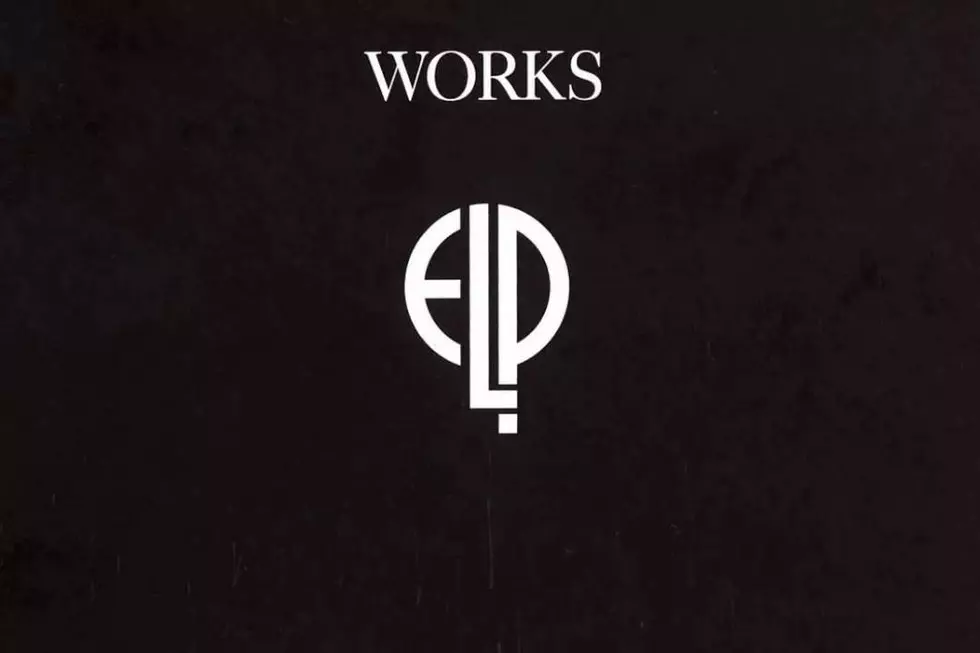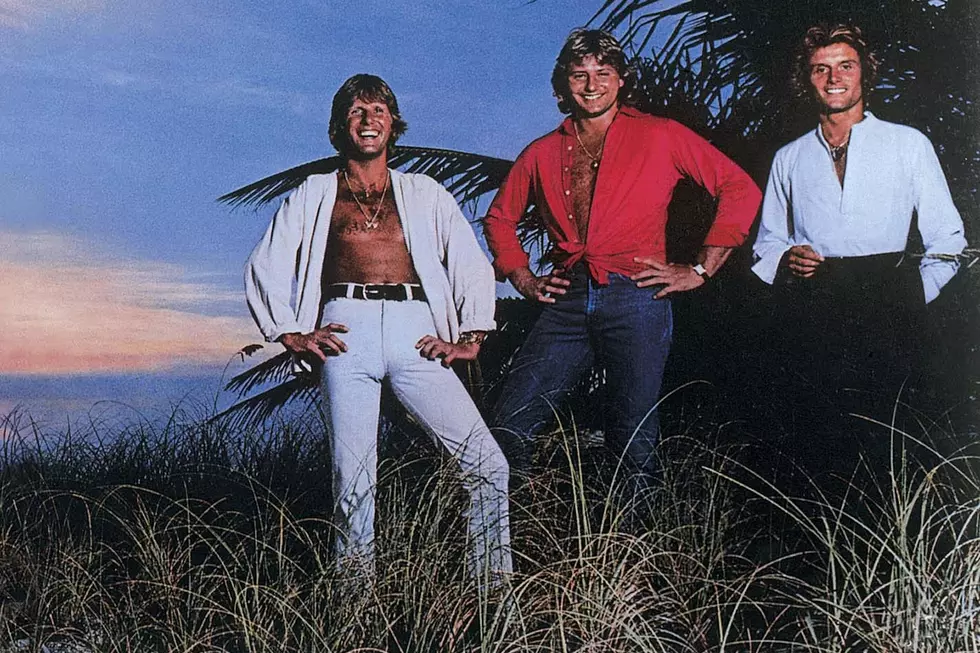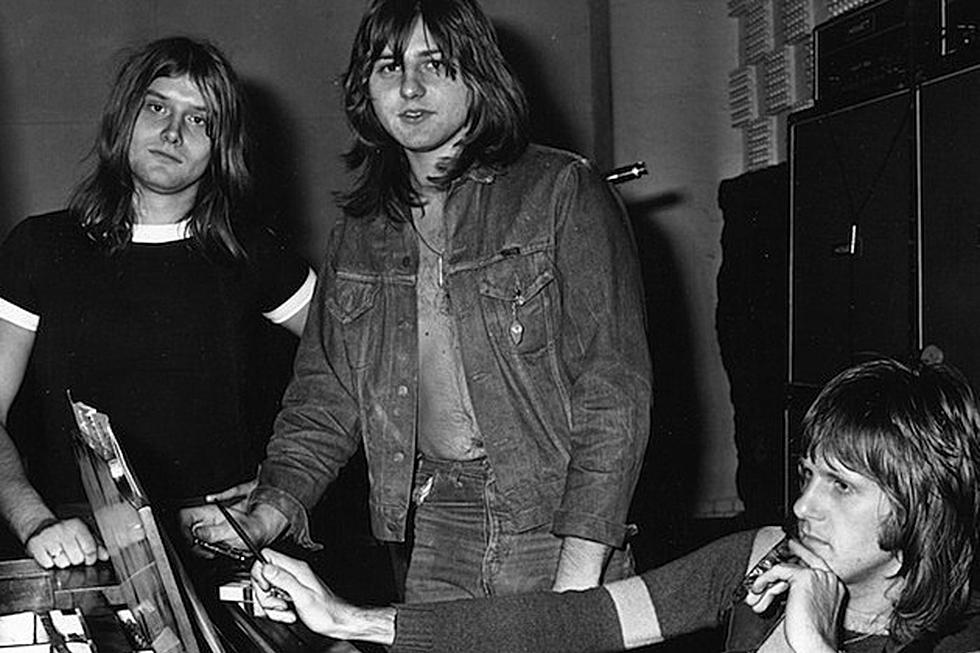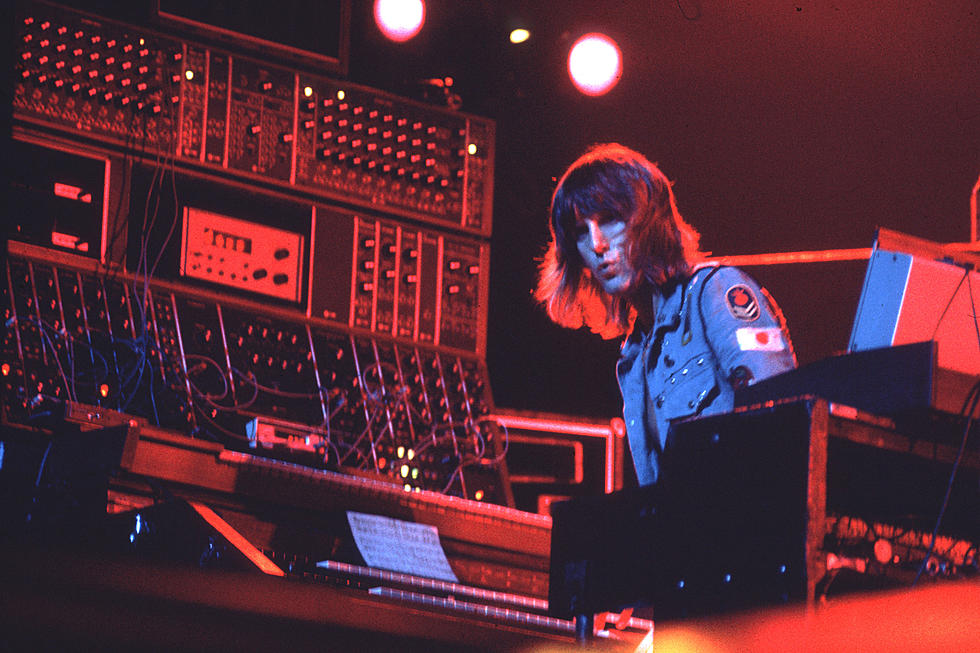
Why Emerson, Lake and Palmer Started to Split on ‘Works Volume 1′
Emerson, Lake & Palmer’s Works Volume 1 represents the boldest move the band ever made and the beginning of their undoing. By the time ELP came off the tour for its previous album, 1973’s Brain Salad Surgery, the group was at their peak in both popularity and artistry. But the trouble was the band members were the furthest thing from one big, happy family.
You don’t make musical statements as elaborate and daring as theirs without having a decent-sized ego, and the three alpha males of ELP were no strangers to locking horns with each other over their work. So when they got off the road from supporting Brain Salad Surgery in 1974, they jumped at the chance for a long vacation from each other, not reconvening again until 1976, when they began the sessions for Works Volume 1.
Even then, the three were apparently so uninterested in functioning as a unit that they did so for only one quarter of what turned out to be a double album. The rest of Works was each member’s opportunity to strut their solo stuff instead.
Despite their paucity of team spirit, Emerson, Lake & Palmer were still firing on all cylinders artistically, so they still had something very vital to offer as a group. So Works emerged in March 1977 as ELP’s last truly impressive statement, though the solo segments of the release tended toward the hit and miss.
Even on the inside of the original LP’s gatefold sleeve, Keith Emerson, Greg Lake and Carl Palmer appear separately, each one’s image emblazoned on a separate panel. And those images capture the identity each was trying to establish on their solo sides.
Emerson stares seriously over the top of his grand piano, every inch the intense, classically influenced artiste. Lake bears a big smile, unbuttoned shirt and an acoustic guitar with a heart design, the quintessential romantic troubadour. Palmer is seated at his drums wearing a tank top, with a towel sitting atop his floor tom, making it look like he had just finished up a heavy-duty sweat-inducing session at the skins.
Emerson’s solo side starts the album off, and it’s occupied entirely by his three-movement, 18-minute “Piano Concerto No. 1,” a self-penned piece performed with the London Philharmonic that maximizes his classical inspirations while also finding time to work in some distinct jazz flavors. Just as the classical pieces the band adapted by others were from modern composers, Emerson’s own composition bears an unmistakably modernistic feel.
He’s not trying to come off like some faux-baroque half-assed Bach; his Concerto is meant to be a living, breathing thing, not an automatic museum resident, and it ultimately succeeds. Even for ELP, opening an album with something like this is a pretty ballsy move.
Listen to Emerson, Lake & Palmer Perform 'Pirates'
Lake’s portion couldn’t be more aesthetically different from Emerson’s. On a quintet of tunes co-written with Peter Sinfield, the lyricist who became famous for his work with King Crimson and went on to provide words for some of Brain Salad Surgery, Lake seems like he’s doing his damnedest to become the British Neil Diamond.
Three of the songs – “Lend Your Love to Me Tonight,” “Nobody Loves You Like I Do” and “Closer to Believing” – go a good way toward that goal, sporting syrupy MOR sounds but lacking the do-or-die pop hooks that put Diamond’s hits across. Still, “C’est La Vie” turned out to be quite a lovely, bittersweet ballad with a French flavor and evocative accordion. And “Hallowed Be Thy Name” is actually the most powerful small-scale composition on the album. While Sinfield seems to be on autopilot for most of these songs, here he’s at his quirky best, and the production is punchy instead of pillowy, with an eccentric, angular string arrangement.
Palmer’s side is perfectly fine but ultimately unexceptional. Totally instrumental, it consists mostly of jazz fusion outings punctuated by brassy big-band arrangements. Penned chiefly by Palmer, the pieces are long on top-shelf playing but short on interesting musical ideas. This being an ELP album, there are also a couple of classical adaptations. “The Enemy God Dances With the Black Spirits,” from a Prokofiev piece, is over-arranged, and comes off like the soundtrack to a quickie '40s crime noir.
Bach’s “Two Part Invention in D Minor,” however, with an arrangement featuring vibraphone and marimba, turns out to be quite captivating. A drastic rearrangement of “Tank” from ELP’s 1971 Tarkus album brings those unfortunate crime-jazz horns back and ends up going nowhere special.
Finally, after three sides of uneven material ranging from triumph to treacle, the actual ELP section of the record arrives. It contains just two pieces, but, boy, do they make the most of them. Aaron Copland’s anthemic “Fanfare for the Common Man” gets the prog-rock treatment in a version that probably earned the renowned composer more than anything else in his entire career.
Buoyed by a propulsive groove from Lake and Palmer, Emerson uses his ultra-expensive, state-of-the-art Yamaha GX-1 synth to reproduce the orchestral colors of Copland’s piece before embarking on an extended solo. The track achieves an undeniable majesty and momentum. It ended up giving the band their biggest hit ever, and has since been the soundtrack to innumerable TV sporting events.
Works Volume 1 closes with “Pirates,” based on a score Emerson had originally written for a scrapped movie adaptation of the novel The Dogs of War, with lyrics added by Lake and Sinfield, it’s an epic swashbuckling saga about a bloodthirsty crew of buccaneers, full of cinematic drama, with Lake’s gargantuan baritone and charismatic delivery the perfect match for Sinfield’s vivid imagery. And the symphonic arrangements of the Orchestra de l’Opera Paris blend the story seamlessly into Emerson’s score.
The 13-minute track is a bravura achievement. As the last truly great song in the ELP catalog, it was a hell of a high note to go out on, even if the ELP story didn’t exactly end there. After an outtakes album, titled Works Vol. 2, and released later in 1977, there was the universally reviled contractual-obligation album, Love Beach, before things finally fell apart for good.
Top 50 Progressive Rock Artists
Why ELP Hated One of Their Own Albums
More From Ultimate Classic Rock









